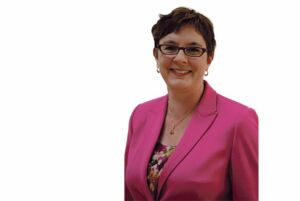Opinion
Living in an Expat World | Denmark – a hidden gem
This article is more than 11 years old.
Belgium’s Tiny Maerschalk, who has worked for the International Community networking platform since its foundation in 2008, knows how it feels to settle in a new country. Dedicated to improving conditions for new arrivals, here she shares her insights about the issues that mean most to internationals in Denmark.

I do not deny that there are still a range of challenges when relocating to Denmark. However, many initiatives have been started in recent years and their impact on society as a whole has made it easier to settle here both professionally and socially. Despite the well-known challenges such as getting to know the Danes, trying to learn Danish and finding the winter somehow charming, I myself find it a great place to be. The Danish workplace culture and the work-life balance especially offer great opportunities for both professional and personal growth.
The Danish workplace offers an informal atmosphere where everyone, regardless of their title, is encouraged to voice their ideas, participate in professional discussions and get involved in the decision-making process. I have realised I would miss this aspect of equality and openness tremendously if I worked in a more hierarchical-based workplace culture. However, it takes time to adjust too, that’s for sure – time to overcome the barrier of openly voicing ideas in the rough and tackling the active feedback.
The high level of autonomy and responsibility makes me commit more and makes me go all in. It is the excellence of the results you provide, rather than voicing your excellence out loud, which gains respect amongst your colleagues and makes you stand out in the eyes of the management. This typically results in a more laid-back atmosphere at the workplace, where you do not have to constantly ‘sell’ yourself and compete with your co-workers.
For a long time I have tried to explain how I experience life in Denmark. I usually say that I feel that life is just ten percent slower. It is not of course. It just feels that way due to the high level of flexibility. This enables me to juggle rather than struggle with expectations, both at work and at home, thereby giving me a higher level of satisfaction with life as a whole.
Both the Danish workplace culture and the work-life balance are some of the topics highlighted in a project recently initiated nationwide: the fittingly-named Talent Attraction Denmark. Denmark offers unique strengths to international talents, and these are presented in Talent Attraction Denmark’s online toolbox. The toolbox – which can be accessed for free by companies, organisations and individuals – consists of marketing materials that are valuable when recruiting internationals. Take a look at the films, articles and infographics presented there and see whether you agree.
I certainly hope that many more will discover this hidden gem in the north.
About










































